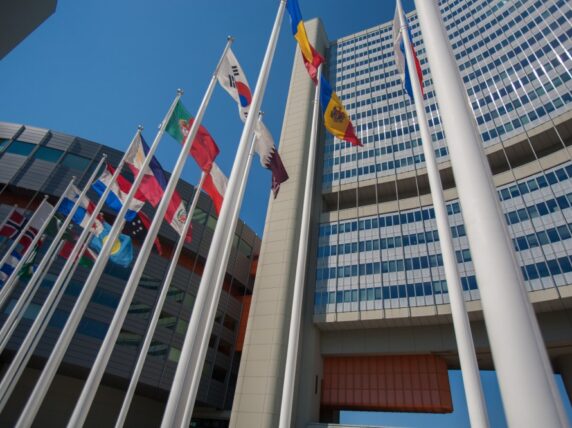Rethinking power structures to reinvent our charity models
In May, two months into the declaration of Covid-19 as a pandemic, I listened to a heart-warming story in a webinar by the Young Professionals in Foreign Policy. A group of young women in Sudan were collecting donations to buy ventilators for Covid-19 patients.
At that time, Sudan had fewer than 200 ventilators. The group managed to buy 100 more and they distributed the ventilators in the capital and across Sudan. The diaspora – estimated to be five million people – had particularly been helpful in the fundraising efforts.
While it was a great story testifying to the important role of youth, volunteering and diaspora in development, what was the role of INGOs in all this?
The imperative to reinvent our models
Constrained by the travel ban, INGOs have not been able to send their headquarter staff to support efforts in-country. For a long time, development workers and thinkers have talked about an overarching power imbalance between global actors and local actors.
Conversations about reinventing charity models have been bubbling for a long time. In 2019, I spoke at the Bond Conference about rethinking organisational models. The premise of the session was that, in today’s challenging world, NGOs need to become more agile and resilient to ensure their sustainability, growth and impact. These words ring true more than ever.
The session covered how organisations can make use of a social enterprise model, balancing grants and earned income, and how to build a global team which is completely remote. These are all priorities NGOs are thinking hard about, in the wake of Covid-19 which is seeing a precipitous drop in donations and the need for remote work.
The structure of power is the hardest to change
What I did not say explicitly, but was in the back of my mind, was how we could truly shift leadership and power from the so-called “global north” to low and middle income countries. I have always envisioned that my role, as the founder and CEO of social enterprise Lensational, should become redundant, and the quicker we can get there, the more successful we are as an organisation.
At conferences, I hear NGO representatives say that “we need to do ourselves out of a job”, but do we really mean that? Psychologists have found that power, like drugs, is addictive – perhaps one of the less politically correct reasons why little change has happened. Before we can meaningfully change the relationships between so-called global actors and local actors, implementers and so-called “beneficiaries”, we need to ask ourselves hard questions about power and control.
Subscribe to our newsletter
Our weekly email newsletter, Network News, is an indispensable weekly digest of the latest updates on funding, jobs, resources, news and learning opportunities in the international development sector.
Get Network NewsThere is always space for reinvention, even if we look to the past. The word charity originated in late Old English to mean a “Christian love of one’s fellows,” and up until at least the beginning of the 20th century, this meaning remained synonymous with charity. With the maturity of nation states and growth in colonialism, charity has evolved to become charities – institutions whose business is to do good, which have accumulated power and control, mainly in the hands of white people, over the 20th century.
The root of the word charity comes from helping our fellow human beings. If the structures we have created to achieve that have moved us further away from that goal, then we need to be brave enough to undo them. There are already so many examples of how things could be done differently. Sustainability, inclusivity and agility are not just buzzwords. They are essential conditions to enabling NGOs to create the most positive change.
Trends, opportunities and innovations in changing charity modelsBond’s recent report, Four transitions re-shaping the UK’s international development system, explores the trends, opportunities, innovations and risks which INGOs need to consider over the next 10 years. The fourth transition delves into reinventing charity models, where we look at the hard questions NGOs need to ask about their business models, whether the traditional charity model is still fit for purpose, and how we change our relationship with the people we serve. Some NGOs are looking at alternative structures and governance that allow for more flexible ways of working and financing, alongside new approaches to accountability. The UK sector is also having to look at its culture and leadership, following incidents of sexual harassment, abuse and bullying. Similarly, the NGO world needs to be interrogate the colonialism and racism inherent in development, and address issues of inclusivity and diversity. Access the four transitions report. |
Category
News & views



